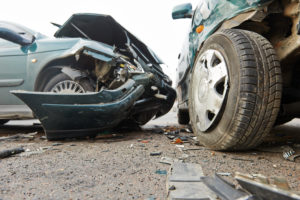Car Accidents Caused By Medical Events: 4 Questions To Ask Your Attorney

Car accidents that result in injuries and property damage can occur in a variety of ways, from another driver failing to stop at an intersection to texting while driving, but what happens when an accident is caused by a sudden medical emergency that affects another motorist? Meeting with an experienced car accident attorney at MartinWren, P.C. to ask a few questions about this type of situation may help you recover financially.
1. Is the Other Driver at Fault?
Virginia, like most states, operates under a rule that recognizes that a sudden medical emergency may be the cause of a car accident, such as a heart attack or a stroke. Under this rule, the driver who suffered an unforeseeable medical event cannot be held legally responsible for causing the crash because they did not act negligently or could not control his or her vehicle. In most cases, the driver must not only prove that he or she lost consciousness and had no control before striking your car, but that the medical event that occurred was completely unexpected.
2. What Defines a “Sudden” Medical Emergency?
For a legal consultation with a personal injury lawyer, call (434) 817-3100
If a driver claims that he or she had a sudden and unexpected medical emergency that caused an accident, the court will have to make decisions about the wreck by gauging the degree of the swiftness of the event. For example, if the driver felt an onset of symptoms while driving, such as shortness of breath or chest pains but failed to pull over, this may count as negligence, as it put you in danger. We have found that trucking companies and tractor trailer owners oftentimes rely on the sudden medical emergency defense in cases.
3. Is Medical History a Factor?
You may be able to recover damages if the other driver has a known history of medical problems that may have affected his or her ability to drive safely. Some medical problems may prevent individuals from safely operating a motor vehicle, and if your attorney can prove that the other driver knew his or her medical condition could cause an accident, this may count as an act of negligence. This is often true of older drivers who do not want to give up their driving privileges despite one or more health issues.
We have oftentimes found that truck drivers who cause crashes and rely on the sudden medical emergency defense have ample reason to suspect that they may experience a medical event. Even when a driver’s medical history did not give an indication that the driver would pass out while driving, it is typically not the case that a medical event occurred so suddenly and unexpectedly that a driver had no ability to react to it or anticipate that it could lead to problems. Instead, drivers who have medical events often ignore warning signs and continue to drive even though they should be aware that their illness could impair their ability to drive.
4. Do Insurance Companies Get Involved?
If a driver causes an accident he or she claims was the result of a sudden and unforeseen medical emergency, the insurance company that covers that individual will likely investigate the crash and try to prove that the accident was unavoidable. Because insurance companies love to rely on this defense, they will likely use it to try to deny or severely limit the amount of money you can expect to recover. If that’s the case, you will need to hire an experienced personal injury attorney to represent you to defeat this defense.
In some cases, car accidents caused by medical emergencies are unavoidable. But please keep in mind that this is very rare, and that most drivers who experience a medical event while driving have reason to suspect that the medical event is likely to occur. In that event, you have legal options.
The experienced personal injury attorneys at MartinWren, P.C. have not only faced the sudden medical emergency defense in several cases, and we have successfully dealt with it. If you have a case where this is at issue, please contact an attorney at MartinWren, P.C. today for a free consultation.
Call (434) 817-3100 or complete a Case Evaluation form



